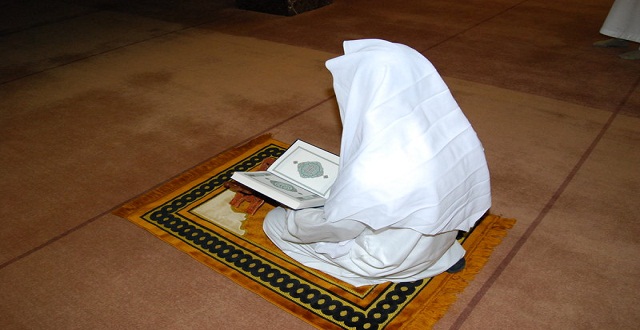What is the reality of the Jinn?
It can be deduced from the literal meaning of this word that the Jinn is an entity that is invisible; numerous characteristics of this being are mentioned in the Qur’an, such as:
1. It is an entity that has been created from the flames of fire, unlike man, who has been created from earth:1
وَ خَلَقَ الْجَآنَّ مِنْ مَارِجٍ مِنْ نَارٍ
2. Possesses knowledge, perception, the faculty of logic, the power of reasoning, and can distinguish between truth and falsehood (various verses of Suratul Jinn).
3. Possesses (religious) obligations and responsibilities (verses of Suratul Jinn and al-Waqi’ah).
4. Some of them are believers while others are disbelievers:
وَ أَنَّا مِنَّا الصَّالِحُونَ وَ مِنَّا دُونَ ذٌلِكَ…
“There are among us some that are righteous, and some the contrary…”2
5. They shall be resurrected:
وَ أَمَّا الْقَاسِطُونَ فَكَانُوا لِجَهَنَّمَ حَطَباً
“And as to the deviators, they are fuel of hell.”3
6. They initially possessed the power to penetrate into the skies, eavesdrop and procure news but were later prohibited:
وَ أَنَّا كُنَّا نَقْعُدُ مِنْهَا مَقَاعِدَ لِلسَّمْعِ فَمَنْ يَسْتَمِعِ الآنَ يَجِدْ لَهُ شِهَاباً رَصَداً
“And that we used to sit in some of the sitting-places thereof to steal a hearing, but, he who would (try to) listen now would find a flame lying in wait for him.”4
7. They used to establish contact with some of the people and, by means of the limited knowledge of the Unseen that they possessed, endeavoured to misguide the people:
وَ أَنَّهُ كَانَ رِجَــالٌ مِنَ الإِِنْسِ يَعُوذُونَ بِرِجَالٍ مِنَ الْجِنِّ فَزَادُوهُمْ رَهَقاً
“And that persons from among men used to seek refuge with persons from among jinn, so they increased them in wrongdoing.”5
8. From amongst them there are those who, like some humans, possess great powers:
قَالَ عِفْرِيتٌ مِنَ الْجِنِّ أَنَا آتِيكَ بِهِ قَبْلَ أَنْ تَقُومَ مِنْ مَقَامِكَ
“One audacious among the jinn said: I will bring it to you before you rise up from your place; and most surely I am strong (and) trusty for it.”6
9. They possess the power to perform some of the tasks that are required by man:
وَ مِنَ الْجِنِّ مَنْ يَعْمَلُ بَيْنَ يَدَيْهِ بِإِذْنِ رَبِّهِ وَ مَنْ يَزِغْ مِنْهُمْ عَنْ أَمْرِنَا نُذِقْهُ مِنْ عَذَابِ السَّعِيرِ يَعْمَلُونَ لَهُ مَا يَشَآءُ مِنْ مَحَارِيبَ وَ تَمَاثِيلَ وَ جِفَانٍ كَالْجَوَابِ
“And of the jinn there were those who worked before him by the command of his Lord; and whoever turned aside from Our command from among them, We made him taste of the punishment of burning. They made for him what he pleased of fortresses and images, and bowls (large) as watering-troughs and cooking-pots that will not move from their place.”7
10. Their creation on the earth was prior to man’s creation:
وَ الْجَآنَّ خَلَقْنَاهُ مِنْ قَبْلُ مِنْ نَّارِ السَّمُوْمِ
“And the jinn We created before, of intensely hot fire.”8
In addition, it can be clearly inferred from the verses of the Noble Qur’an that, contrary to what is popular amongst the common masses, humans are a species superior to them. This can be concluded by the fact that all the divine prophets had been chosen from the humans; moreover, many jinn too had believed in the Noble Prophet (S) – who was a human – and pledged allegiance to him. Additionally, the obligation upon the Shaytan of prostrating before Adam at a time when he (the Shaytan), according to the explicit statements of the Qur’an, had been of the elders of the Jinn9, further reinforces this idea of superiority.
The discussion thus far has revolved around the aspects that can be inferred about this invisible entity from the Noble Qur’an, which is devoid of all superstitions and non-scientific issues. However, we do know that the general and the unaware masses have concocted great superstitions about this entity which neither conforms with logic nor intellect, and consequently have imparted an irrational appearance to this being such that whenever the word ‘jinn’ is uttered, a handful of strange ideas immediately come to mind – entities possessing dreadful appearances, who have horns and tails, are harmful, troublesome, malicious and ill-mannered, who can set a house on fire by pouring a cauldron of boiling water in one corner of the house! These are examples of such fanciful and superstitious beliefs!
If our perspective of the existence of jinn is purified from such superstitions, the main issue is totally acceptable for, there exists no reasoning to restrict living entities to only those that can be seen by us. On the contrary, scholars of natural sciences state: The entities that man can perceive by means of his senses are marginal in comparison to those that cannot be perceived by means of them.
Prior to the discovery of microscopic organisms, no one would have believed that in one drop of water or blood, there existed hundreds of thousands of living entities that man could not see.
The scientists also state: Our eyes can perceive a limited (range of) colours and our ears can hear a limited (range of) sound waves; the colours and sounds that cannot be perceived by means of our eyes and ears are more numerous than those that can be perceived by them.
When the state of the world is such, why should the existence of a species of living entities, whom we cannot perceive by means of our senses, be so fantastic and astonishing? And why should we not accept it when we have been informed of it by a truthful informer like the Noble Prophet (S)?
In any event, on the one hand, the Qur’an has informed us of the existence of the jinn possessing the aforementioned characteristics; while on the other hand, there exists no rational proofs which deny the existence of such an entity. Accordingly, we ought to accept their existence but simultaneously disregard the inappropriate superstitions of the general public in connection with these beings.
It is important to note that at times, the term jinn is used in a more expansive meaning – one that tends to encompass a number of invisible entities, irrespective of whether they possess intellect and perception or not. In this expanded meaning of the word, even animals that are not seen by the eyes, usually remaining hidden in their lairs, are included.
This is proved by a tradition of the Commander of the Faithful (a.s.) wherein he says: “Allah (s.w.t.) has created the jinn in five kinds – some are like the wind in the air (invisible), some are in the form of snakes, some in the form of scorpions, some in the form of the insects of the earth while some are like the humans and they shall be subjected to Reckoning and punishment.”10
In the light of the above tradition and its expansive meaning, numerous problems encountered in narratives with respect to the jinn appear to be solved.
For example, in some of the traditions of the Commander of the Faithful (a.s.), we read:
لاَ تَشْرَبُوا الْمَآءَ مِنْ ثُلْمَةِ الإِِنَاءِ وَ لاَ مِنْ عُرْوَتِهِ فَإِنَّ الشَّيْطَانَ يَقْعُدُ عَلَى الْعُرْوَةِ وَ الثُّلْمَةِ.
“Do not drink water from the broken portion of the vessel nor from the portion of the handle, for surely, the Shaytan sits upon the handle and the broken portion.”11
In view of the fact that Shaytan is from the jinn, and knowing the fact that the broken portion of the vessel and similarly its handle are places of accumulation of numerous microbes, it does not appear too far-fetched that jinn and Shaytan, in their expansive meanings, should also include these entities too, in addition to possessing a specific meaning, i.e. an entity, who possesses understanding, intelligence and religious obligation.
And traditions in this regard are numerous.12 and 13
——————————————————————-
1. Suratul Rahman (55), Verse 15
2. Suratul Jinn (72), Verse 11
3. Suratul Jinn (72), Verse 15
4. Suratul Jinn (72), Verse 9
5. Suratul Jinn (72), Verse 6
6. Suratul Naml (27), Verse 39
7. Surat Saba (34), Verses 12, 13
8. Suratul Hijr (15), Verse 27
9. Suratul Kahf (18), Verse 50
10. Safinatul Bihar, vol. 1, pg. 186 (under جن)
11. al-Kafi, vol. 6, pg. 385, Kitab al-At’imah wa al-Ashribah, Chapter Bab al-Awani, no. 5.
12. In vol. 1 of the book Awwalin Danishgah Wa Aakhirin Payam, approximately 20 traditions have been complied in this regard.
13. Tafsir-e-Namuna, vol. 25, pg. 154

















